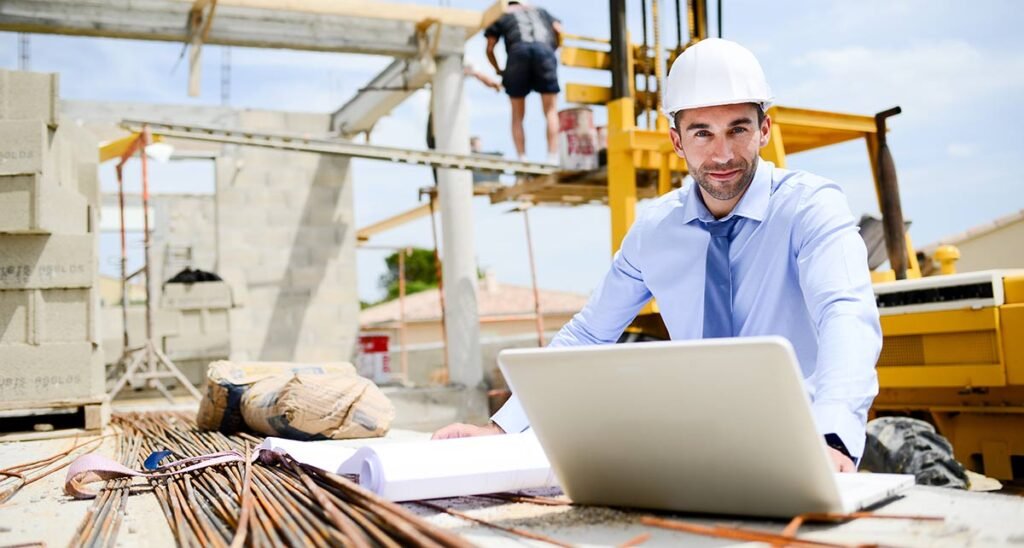Construction projects—whether residential buildings, commercial complexes, or infrastructure developments—are inherently complex and multifaceted. They involve numerous stakeholders, significant financial investments, tight deadlines, and strict safety regulations. In such a high-stakes environment, ensuring that everything runs smoothly is crucial. That’s where construction project management (CPM) comes into play.
Construction project management is not just about building structures—it’s about planning, coordination, execution, and control to ensure the final project meets objectives in terms of scope, time, cost, and quality. In this article, we explore what construction project management is and why it is essential for modern-day construction success.
What Is Construction Project Management?
Construction project management is the process of managing all aspects of a construction project, from conception to completion. It involves coordinating people, materials, equipment, budgets, and schedules to deliver a project that fulfills its intended purpose, meets all regulatory standards, and satisfies the client’s expectations.
Unlike general project management, construction project management is specifically tailored to the construction industry. It requires deep knowledge of engineering principles, legal regulations, building codes, and environmental guidelines.
A construction project manager typically oversees:
-
Budget planning and cost control
-
Scheduling and timeline management
-
Resource allocation and procurement
-
Risk management
-
Communication between stakeholders
-
Quality assurance
-
Compliance with health and safety regulations
Key Phases of Construction Project Management
A well-executed construction project typically follows these five core phases:
1. Initiation
The project begins with a feasibility study and business case. At this stage, stakeholders define the project’s goals, timeline, budget, and potential challenges.
2. Planning
Detailed plans are developed, including blueprints, work breakdown structures (WBS), schedules, procurement strategies, and risk assessments. This phase is critical for setting a solid foundation.
3. Execution
During this phase, the physical construction work begins. Contractors, subcontractors, and workers are mobilized, and materials are delivered. The project manager monitors the workflow, quality, and safety standards.
4. Monitoring and Control
Throughout execution, performance is continuously monitored. Project managers track budget adherence, schedule milestones, and quality benchmarks, making adjustments as needed.
5. Closure
Once the project is completed, final inspections are conducted. The site is handed over to the client, documentation is finalized, and post-project evaluations are done.
Why Is Construction Project Management Essential?
Now that we understand what CPM is, let’s explore the reasons why it’s so vital to the success of any construction project.
1. Ensures Timely Completion
Construction delays are not just frustrating—they’re expensive. Project managers use scheduling tools like Gantt charts and Critical Path Method (CPM) analysis to plan every stage and keep tasks on track. When delays arise (due to weather, labor shortages, or supply chain disruptions), a skilled project manager can quickly implement contingency plans.
Why it’s essential: Timely delivery minimizes cost overruns, enhances client satisfaction, and ensures resource availability for future projects.
2. Controls Budget and Reduces Costs
Construction budgets can spiral out of control without careful oversight. Project managers use budgeting software and forecasting tools to:
-
Track expenses in real-time
-
Negotiate better pricing with vendors
-
Avoid unnecessary rework through quality control
-
Forecast future spending based on project progress
Why it’s essential: Effective cost control ensures profitability and keeps clients and investors confident in the project’s viability.
3. Improves Communication and Coordination
A construction project involves architects, engineers, contractors, government bodies, suppliers, and clients. Project managers serve as the central point of contact, ensuring clear communication and minimizing misunderstandings.
They often use modern project management platforms to:
-
Share updates in real-time
-
Assign and track tasks
-
Maintain digital records and documents
-
Host virtual meetings and approvals
Why it’s essential: Good communication reduces delays, boosts productivity, and ensures that all parties are aligned.
4. Manages Risks and Handles Uncertainties
Construction projects are exposed to various risks—ranging from environmental factors and legal disputes to financial instability and equipment failure. Project managers are trained to identify, assess, and mitigate these risks through contingency planning.
Why it’s essential: Early risk detection can prevent costly disruptions, legal battles, and project failure.
5. Maintains Quality Standards
Delivering a structurally sound, safe, and compliant building is non-negotiable. A project manager ensures that construction practices meet required codes, specifications, and quality benchmarks. They also manage inspections, audits, and testing.
Why it’s essential: High-quality construction reduces liability, increases lifespan, and enhances the reputation of the builder or firm.
6. Enhances Resource Utilization
A good construction manager ensures optimal use of labor, materials, and machinery. They coordinate work shifts, reduce idle time, and minimize waste.
Why it’s essential: Efficient resource allocation reduces costs and improves environmental sustainability.
7. Enables Use of Modern Technology
Today’s project managers increasingly rely on digital tools like:
-
Building Information Modeling (BIM)
-
Drones for site surveys
-
Construction management software (e.g., Procore, Buildertrend, PlanGrid)
-
AI and predictive analytics
Why it’s essential: Technology improves planning accuracy, enhances safety, and streamlines workflows.
8. Supports Regulatory Compliance and Safety
Compliance with local laws, environmental regulations, and occupational safety standards is critical. Construction project managers are responsible for ensuring:
-
Workers are trained and equipped
-
Safety protocols are followed
-
Permits and documentation are in order
Why it’s essential: Avoids legal issues, fines, and workplace injuries, all of which can halt a project.
9. Delivers Client Satisfaction
A successful project is one that meets or exceeds the client’s expectations. Construction managers keep clients informed, manage change requests, and ensure that the final output reflects the agreed vision.
Why it’s essential: Happy clients lead to repeat business, referrals, and long-term success in a competitive industry.
Conclusion
Construction project management is more than just oversight—it’s the backbone of successful project execution. With multiple moving parts and high stakes, a construction project without a qualified manager is vulnerable to delays, budget blowouts, safety hazards, and unsatisfied clients.
As construction demands continue to grow in 2025 and beyond, so too does the need for professional project management. Embracing construction project management is not just beneficial—it is essential for delivering quality projects on time, within budget, and to the highest standards.












































